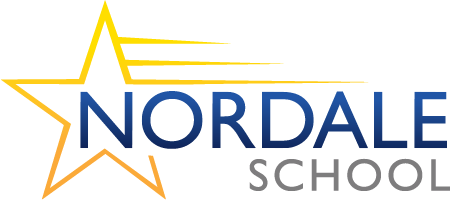Code of Conduct
At Nordale School, our purpose is to ensure success for all learners. It is a place that is safe, where we act responsibly and respectfully, and cooperate with each other. Our guidelines for behaviour are governed by the Louis Riel School Division policy “Safe Schools/Code of Conduct.” Please see “Appendix A” of the Nordale School Handbook for the complete policy.
Roles & Responsibilities of Parents & Students
The role and responsibility of the student is to:
- attend school and classes regularly and punctually;
- comply with:
- the student discipline and behaviour management policies of the school and School Division or school district, and the school’s code of conduct; and
- complete assignments and other related work required by teachers or other employees of the School Division or school district; and
- treat school property and the property of others employed at or attending the school with respect.
To support the education of his/her child the role and responsibility of the parent is to:
- cooperate fully with the child’s teachers and other employees of the School Division or school district to ensure the child complies with:
- school and School Division or school district student discipline and behaviour management policies, and
- the school’s code of conduct; and
- take all reasonable measures to ensure the child attends school regularly.
Student Conflict
It is the belief of the administration and staff at Nordale that learning takes place most effectively in a safe atmosphere free from fear, disruptions and tension. The school’s Code of Conduct is an important tool in maintaining and enhancing this environment. Parents or students should take up any problems that threaten this objective with the staff immediately, in order that a quick resolution might be found. To this end, parental support is critical to creating an excellent learning environment.
Some ways in which the school ensures student safety and security are:
- Students are taught skills for non-violent conflict resolution and are encouraged to put the lessons into practice;
- Students eating at school at lunchtime are monitored in the classes by student volunteers and paid adult lunch supervisors, who circulate from room to room;
- A minimum of two adults are on the playground to provide supervision at each recess. Four adults are responsible for supervision during the indoor and outdoor lunch period, two oversee the Grades 1 to 4 area, while the other two supervise the Grades 5 to 8 playground.
- The use of Restitution principles to help students when they have made a mistake and want to fix their problem.
Student Discipline & Bottom Lines
Bottom lines are a list of behaviours that are considered totally unacceptable to students, staff and parents. Should these behaviours occur, staff would deal with the student. Typically, the student is removed from the group as an immediate consequence. The duration of the removal is dependent on the severity of the behaviour. It is not restitution, however, restitution may take place later. The following list provides examples of bottom line behaviours;
- Intentional physical aggression
- Weapons
- Drugs/alcohol/smoking
- Direct defiance of an adult
- Harassment/bullying
- Vandalism/theft
We are beginning the sixth year of our implementation of Restitution as a means of managing our school discipline issues.
Restitution is a process by which students learn self-discipline. In this process, the focus is on the student self-evaluating and assessing how the student’s behaviour has affected others. Then, the student strives to “fix” the problem so that he/she may be strengthened through the restitution process.
In the classroom, teachers strive to redirect the student without sacrificing the self-esteem of the student. The goal is to strengthen the student and to teach them, hence they will no longer be afraid to face their mistakes.
When students make mistakes, staff helps them in the creative process of problem solving. This enables the student to develop a plan to repair their mistake and become strengthened as a result.

